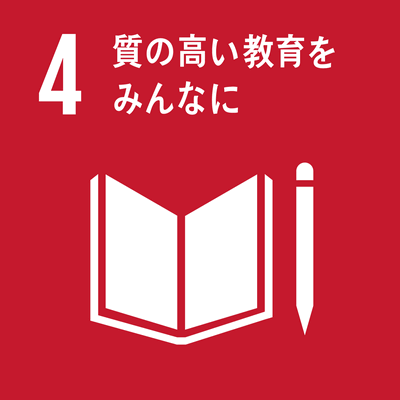シラバス表示
シラバスの詳細な内容を表示します。
→ 閉じる(シラバスの一覧にもどる)
科目の基本情報
| 開講年度 | 2023 年度 | |
|---|---|---|
| 開講区分 | 人文学部文化学科 | |
| 受講対象学生 |
2012年度以降入学生用(文化) 学部(学士課程) : 1年次, 2年次, 3年次, 4年次 |
|
| 選択・必修 | ||
| 授業科目名 | 英語会話中級B | |
| えいごかいわちゅうきゅうびい | ||
| Intermediate English Conversation B | ||
| 単位数 | 1 単位 | |
| ナンバリングコード | humn-cult1130-065
|
|
| 開放科目 | 非開放科目 | |
| 開講学期 |
後期 |
|
| 開講時間 |
火曜日 3, 4時限 |
|
| 授業形態 |
対面授業 * 状況により変更される可能性があるので定期的に確認して下さい
「オンライン授業」・・・オンライン会議ツール等を利用して実施する同時双方向型の授業 |
|
| 開講場所 | ||
| 担当教員 | ジュネジャ、インドゥ | |
| JUNEJA, INDU | ||
| SDGsの目標 |
|
|
| 連絡事項 | * 状況により変更される可能性があるので定期的に確認して下さい |
|
学修の目的と方法
| 授業の概要 | The course focuses on improving students’ conversational skills by learning how to utilize contextual clues in order to understand unfamiliar words or phrases. It offers students a clear step by step sequence integrating structural functions and topics needed to communicate effectively. There will be pair practice and small group discussions followed by presentations with question and answer sessions. |
|---|---|
| 学修の目的 | The purpose of the course is to make students think and make them able to express themselves logically by giving reasons for their choices they tend to make in their daily lives and their carriers. |
| 学修の到達目標 | The main theme of the course is to help students learn and apply communicative strategies to develop their overall English competence. As a result, students should be able to further improve their speaking, listening, reading and writing skills along with improving English pronunciation and speaking fluency. They should also gain confidence in organizing and presenting their ideas, opinions and thoughts to their classmates. |
| ディプロマ・ポリシー |
|
| 成績評価方法と基準 | Classwork 60% Contribution for the class 40% |
| 授業の方法 | 演習 |
| 授業の特徴 |
問題提示型PBL(事例シナリオ活用含) 教員と学生、学生相互のやり取りが、ほぼ英語で進められる授業 |
| 授業改善の工夫 | By taking into consideration the students' abilities, their expectations and requirements, hence modifying the contents and the teaching methods accordingly. |
| 教科書 | Face to Face, Dale Fuller / Corey Fuller, MACMILLAN |
| 参考書 | During the lecture, the teacher in charge will hand out materials accordingly. |
| オフィスアワー | |
| 受講要件 | Students who have passed 「英語Ⅰ(共通教育)」.Otherwise, no special requirement, but students should have a positive attitude and motivation to learn. |
| 予め履修が望ましい科目 | |
| 発展科目 | 英語会話上級A・B |
| その他 | Try to be regular and do all the necessary preparations for each class. Ask questions and give your opinions without being afraid of making mistakes. Always attend the class with a dictionary . Try to read some English articles on a regular basis. |
授業計画
| MoodleのコースURL |
https://moodle.mie-u.ac.jp/moodle35/course/view.php?id=16064 |
|---|
| キーワード | English Communication for Practical Purposes |
|---|---|
| Key Word(s) | English Communication for Practical Purposes |
| 学修内容 | 授業計画 第1回; Course Orientation and Getting to Know Each other 第2回; Talking about Experiences---summer vacation, childhood, school, family 第3回; Talking about Food---ingredients, measurements, cooking methods, Japanese food vs. other foods 第4回; Presentations on How to Cook a Dish 第5回; Talking about Entertainment---TV, music, movies, games 第6回; A Debate on Good and Bad Points of Different Kinds of Entertainment on Children and Young People 第7回; Sports---kind of sports, individual vs. team sports, their favorite sports, sports they want to try 第8回; Talking about Jobs---choosing jobs, job preferences, problems in the work place, gender equality 第9回; Presentations on Employment Situation in Japan---researching the current trends and job market 第10回; Travel---domestic and international travel, budgeting, problems, their favorite places 第11回; Presentations on a Trip they Remember the Most 第12回; Money Matters---attitudes about money, understanding prices and numbers, monthly budget 第13回; Giving and Asking for Directions---asking the location of a place and how to get there, explaining maps in their neighborhoods 第14回; Giving Advice---problems related to health, job, culture, school 第15回; Pair/Group Discussions on the Real Problems Most Students Face 定期試験; Review and Final Exam |
| 事前・事後学修の内容 | You should prepare and review before and after the classes. Always be ready for the questions you want to ask the teacher and your classmates. |
| 事前学修の時間:60分/回 事後学修の時間:60分/回 |
